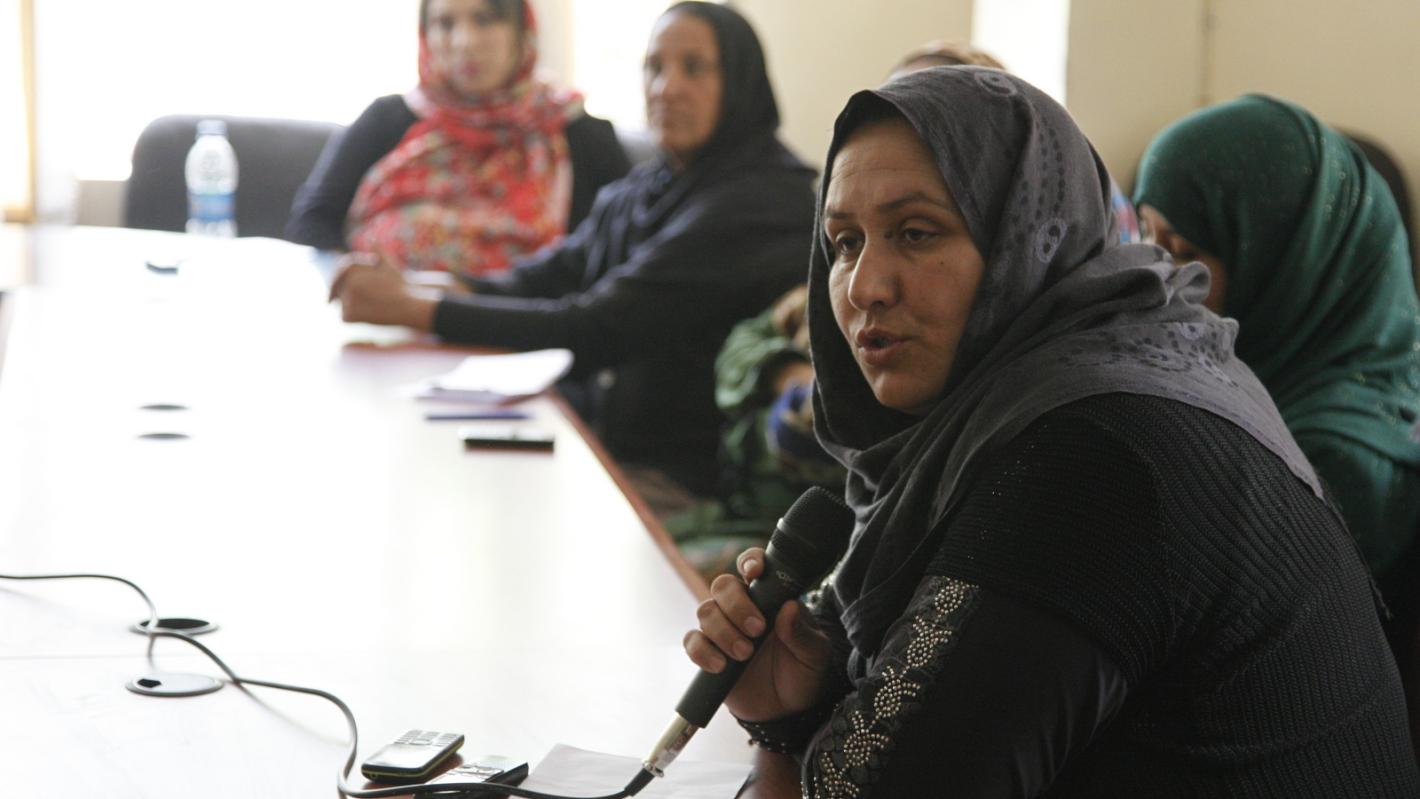SUROBI – Women have always played a special role in deterring conflicts through traditional Afghan mediation systems, say members of the first woman Shura in Surobi district of Kabul province.
UNAMA has been working with communities, authorities and Radio Surobi to support local peace initiatives in the district. Recently a group of women peace activists set up the first woman Shura or Council to advocate for greater participation and inclusion of women in peacebuilding efforts and other development initiatives in the district.
“Women have a special role in traditional Afghan mediation systems” says Mina, Secretary of the Surobi women Shura, adding that women, use their influence in the home to both deter and resolve conflicts.
Much like the rest of the country, women in Surobi - a picturesque district at the junction of the Kabul River and Panjshir - face many common challenges, notably their absence in decision making roles and peace processes. Earlier last year, the women Shura members received conflict prevention and conflict resolution training in Kabul and are helping train other local women’s groups. They are working in coordination and with the backing of local authorities and tribal elders
During a lively radio broadcast on peace aired on Surobi radio - the only radio station in the district - listeners called-in and joined the conversation on how best the community can work together to resolve conflicts and improve the security of the district.
UNAMA supports the Afghan people and government to achieve peace and stability. In accordance with its mandate as a political mission, UNAMA backs conflict prevention and resolution, promoting inclusion and social cohesion, as well as strengthening regional cooperation. The Mission supports effective governance, promoting national ownership and accountable institutions that are built on respect for human rights.
UNAMA provides 'good offices' and other key services, including diplomatic steps that draw on the organization’s independence, impartiality and integrity to prevent disputes from arising, escalating or spreading. The Mission coordinates international support for Afghan development and humanitarian priorities.






